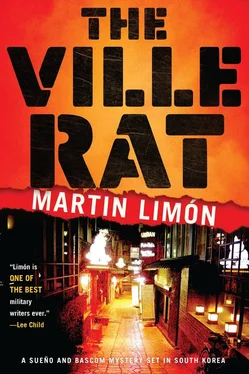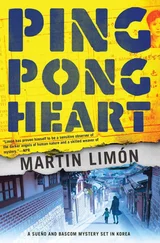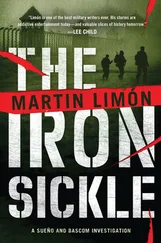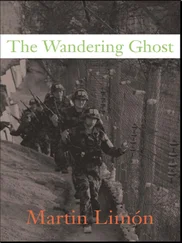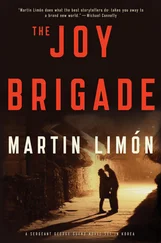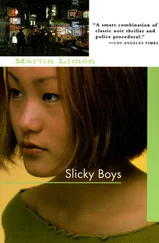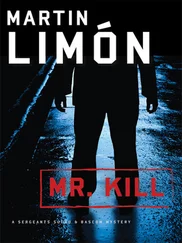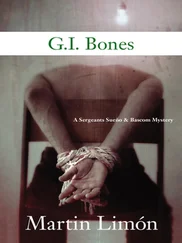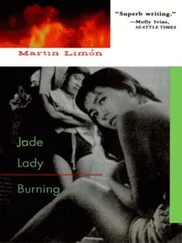Martin Limon - The Ville Rat
Здесь есть возможность читать онлайн «Martin Limon - The Ville Rat» весь текст электронной книги совершенно бесплатно (целиком полную версию без сокращений). В некоторых случаях можно слушать аудио, скачать через торрент в формате fb2 и присутствует краткое содержание. Год выпуска: 2015, Издательство: Soho Press, Жанр: Полицейский детектив, на английском языке. Описание произведения, (предисловие) а так же отзывы посетителей доступны на портале библиотеки ЛибКат.
- Название:The Ville Rat
- Автор:
- Издательство:Soho Press
- Жанр:
- Год:2015
- ISBN:нет данных
- Рейтинг книги:3 / 5. Голосов: 1
-
Избранное:Добавить в избранное
- Отзывы:
-
Ваша оценка:
- 60
- 1
- 2
- 3
- 4
- 5
The Ville Rat: краткое содержание, описание и аннотация
Предлагаем к чтению аннотацию, описание, краткое содержание или предисловие (зависит от того, что написал сам автор книги «The Ville Rat»). Если вы не нашли необходимую информацию о книге — напишите в комментариях, мы постараемся отыскать её.
The Ville Rat — читать онлайн бесплатно полную книгу (весь текст) целиком
Ниже представлен текст книги, разбитый по страницам. Система сохранения места последней прочитанной страницы, позволяет с удобством читать онлайн бесплатно книгу «The Ville Rat», без необходимости каждый раз заново искать на чём Вы остановились. Поставьте закладку, и сможете в любой момент перейти на страницу, на которой закончили чтение.
Интервал:
Закладка:
The man slid deftly between two of the cabs.
“You can talk to us,” I shouted. “We’ll listen!”
“You were there,” he shouted back. “You were almost there!”
And then he disappeared into one of the narrow alleyways.
Ernie and I glanced at one another, coming to an unspoken agreement, and as Ernie padlocked the jeep, I leapt out of the passenger side and gave chase. But there wasn’t much lighting in the alleyway, and by the time Ernie had grabbed his flashlight from the jeep and caught up with me, I’d come to a complete stop because I couldn’t see a foot in front of me. He switched on the “flash,” as Koreans call it, but the narrow pathway in front of us was empty. We followed it five yards back, where it split into three more passageways. We followed one, but it wound through the backs of tightly packed hooches. All we heard was the shouts of mothers berating their kids and pots being clanged and radios blaring the songs of Patti Kim. We returned to where we’d started and checked another passageway but found nothing.
“He knew where he was going,” Ernie said, “even in the dark.”
“Right. He stopped us at that spot so he could say what he wanted to say and then get away.”
We walked back to the jeep. The cab drivers stared at us curiously. In Korean, I asked loudly if anyone had seen that skinny American guy before. Uniformly, they all shrugged. One of the drivers chomped a wad of gum, grinning at us. I asked him specifically if he’d ever seen that American. “Mullah nan,” he replied. Don’t know, me. The other drivers smiled more broadly, enjoying our discomfort, and enjoying the disrespectful way the driver was speaking to us.
Ernie and I climbed back into the jeep.
We drove off slowly, checking the side of the road, half expecting the skinny guy with the red Afro to appear again at the side of the road. About a mile on we reached the MSR. A sign pointing right said jiayu tari, freedom bridge, 2 km. It led across the Imjin River and on into the Demilitarized Zone. The sign pointing left said seoul, 27 km. Ernie turned left.
As we rolled down the MSR, Ernie said, “Who was that guy anyway? A civilian?”
“I don’t know.”
“And what was he trying to tell us?”
I tried to remember his exact words. “He said it wasn’t right that ‘he’ had killed her. That she had been forced to wear the red dress she was wearing when we found her.”
Ernie nodded. “And that she wanted her freedom. But he said something else.”
“He said we’d been close.”
“Yeah. I wonder if this means we missed something today.”
I gazed out the window. Dark rice paddies rolled by. About fifteen klicks farther south, we rolled to a stop at the last 2nd Division security checkpoint. The American MP checked our dispatch.
When he handed it back, he said, “Been waiting for you guys.”
“Why?” Ernie asked.
“I guess somebody’s anxious to make sure you depart the area.” Apparently, the word had been put out via field radio.
“Well, we did,” Ernie snapped.
He gunned the engine as we headed for the distant lights of Seoul. It felt good being away from Division, as if a burden had been lifted from our shoulders. As if we were free.
Seoul was empty, the streets filled with nothing but howling ghosts riding the backs of swirling winds. It was past midnight, during the nationwide midnight-to-four curfew. Nothing moved during these hours. No vehicular traffic, no pedestrians. And if you were by some circumstance on the street, you were not only subject to arrest and prosecution but, more importantly, if you didn’t halt when a soldier or curfew policeman told you to halt, you were subject to being shot on sight. The supposed reason for such draconian measures was to stop any infiltration into the country by North Korean Communist agents. That’s what the ROK government told the world. But I believed the real reason was because the military government of President Pak Chung-hee wanted to demonstrate its iron-fisted control over the general populace-and to make it clear, on a nightly basis, that no dissent would be tolerated.
We passed through Seoul and reached Yongsan Compound on the southern edge of the city. The Korean gate guard checked our dispatch. It was an 8th Army Criminal Investigation Division emergency dispatch and, as such, we were amongst the elect who were authorized to be out during curfew hours. He waved us through.
The barracks were dark and quiet, but as I walked down the long hallway I heard someone talking in a deep baritone voice. When I opened my door I realized what it was. My roommate, Ricky Harrison, had left his stereo system on full blast. It was an inspirational speech by Martin Luther King, Jr. I closed the door behind me, walked through the small room, and switched off the stereo set. Harrison didn’t move. He was sound asleep.
What a lullaby.
I took off my clothes and climbed into my rack. The sheets were crisp and clean because my houseboy, Mr. Yim, was paid to keep them that way; along with doing my laundry and shining my shoes and performing additional errands like taking my clothes in for alteration or having unit patches sewn on, all of which I paid him extra for. As I leaned back and relaxed, I thought that life for a GI in 8th Army wasn’t bad, unless you were on night patrol along the DMZ. Before I could contemplate that difference, exhaustion overtook me.
“Where the hell you guys been?”
Staff Sergeant Riley hunched over his desk, a sharpened pencil behind his ear, the padded shoulders of his green dress uniform sticking out from his rail-thin body like the wings of Icarus. In the back of the office, a stainless-steel coffee urn pumped steady blasts of fragrant steam.
Ernie plopped down in the chair in front of Riley’s desk and grabbed the morning edition of the Pacific Stars and Stripes . As he snapped it open, he said, “We got your twixt, we came back.”
Riley pulled the pencil from behind his ear. “I sent it at fifteen hundred hours. You shoulda been back here by close of business.”
“Are you nuts?” Ernie asked. “We would’ve never made it through the Seoul traffic.”
“Besides,” I added, heading for the coffee urn, “we didn’t receive it until that night.”
“Why the hell not?”
Ernie slammed the paper down. “Because we were out in the ville doing our jobs and not sitting on our asses inside the MP station, like some other investigators around here do.”
Riley jabbed his pencil toward Ernie’s nose. “Some other investigators around here know how to follow the provost marshal’s orders.”
“And they know how to brownnose.”
Riley shoved his pencil back behind his ear and stared down at the stack of paperwork in front of him. “There’s that,” he said.
As I walked toward the coffee urn, Riley shouted at me, “It’s not done yet.”
“Close enough for field soldiers,” I said and drew myself a mug.
Riley grunted. “Some field soldiers.”
I sipped on the coffee. He was right; lukewarm and insipid. Still, I didn’t want to let him know he’d been right, so I drank it down.
Miss Kim, the statuesque admin secretary, busied herself checking a list and pulling files out of grey metal cabinets. When she had what she wanted, she returned to her desk and sat down in front of her hangul typewriter. I set my coffee down and approached her.
“Anyonghaseiyo?” I said.
She smiled, nodded and said, “Nei. Anyonghaseiyo.”
She wore her hair short and businesslike, just below her ears. Her heart-shaped face was pale and unblemished, and her figure was well-respected enough that MPs occasionally made excuses to come into the CID office just to ogle her. It was difficult for her because she was shy and the attention embarrassed her. On her way to work, she usually scurried from the main gate to the office and seldom ventured outside during the duty day; too many foreign eyeballs caressing her. She and Ernie had been an item for a few months, but when she found out his affections weren’t directed toward her exclusively, she dropped him flat. The fact that they still worked together didn’t seem to bother Ernie. When I brought it up, he didn’t understand what I was getting at. But Miss Kim was tormented by the almost daily proximity; I could tell by the way she glanced at him furtively, her face turning red as she did so, and the fact that she always found something to do as far away from him as possible. Still, she couldn’t quit her job. In the early seventies, the Korean economy was still flat on its back from the devastation of the Korean War, and employment opportunities for a young woman were few and far between.
Читать дальшеИнтервал:
Закладка:
Похожие книги на «The Ville Rat»
Представляем Вашему вниманию похожие книги на «The Ville Rat» списком для выбора. Мы отобрали схожую по названию и смыслу литературу в надежде предоставить читателям больше вариантов отыскать новые, интересные, ещё непрочитанные произведения.
Обсуждение, отзывы о книге «The Ville Rat» и просто собственные мнения читателей. Оставьте ваши комментарии, напишите, что Вы думаете о произведении, его смысле или главных героях. Укажите что конкретно понравилось, а что нет, и почему Вы так считаете.
